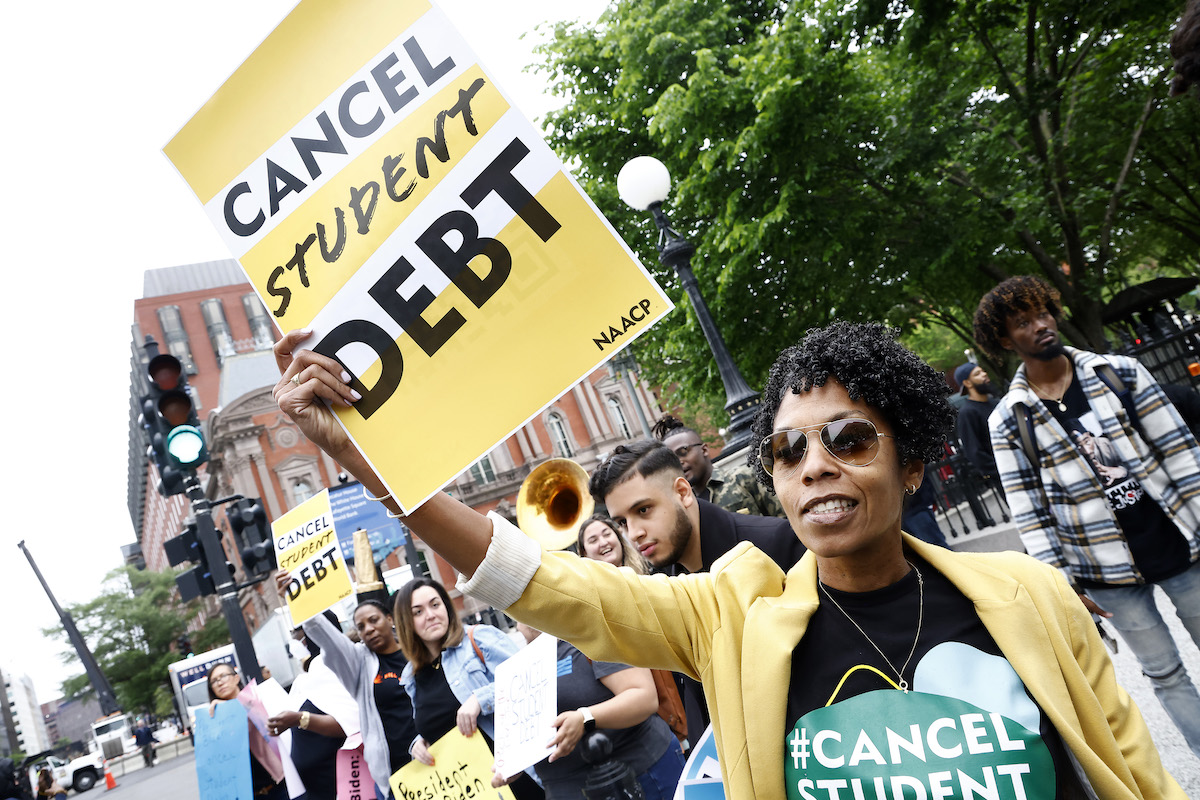Two Democrats Joined House GOP to Not Only Repeal Student Debt Relief But Also Add Retroactive Interest

The U.S. House of Representatives has passed a bill eliminating Biden’s student debt relief program, which would forgive up to $20,000 of student debt for over 40 million people. Although Republicans were responsible for the bill, two Democrats, Jared Golden of Maine and Marie Gluesenkamp Pérez of Washington State, joined Republicans in voting for it.
According to a letter signed by 260 organizations, the bill, should it become law, would also retroactively add interest onto the student loan repayments that were paused during the Covid pandemic.
Luckily, the bill is unlikely to pass in the Democratic-controlled Senate, and Biden has vowed to veto it if he has to. Ultimately, though, the bill may end up in the conservative Supreme Court.
Republicans point to the $315 billion price of student loan forgiveness as a reason why it can’t be allowed. However, the price of student loan forgiveness pales in comparison to the U.S.’s $877 billion in military spending, or the $3.5 trillion cost of extending Trump’s tax cuts for the wealthy. Why shouldn’t the U.S.’s budget prioritize affordable education?
But that’s not the only reason why this bill stinks.
Student debtors aren’t the “elite”
A common tactic that conservatives use to fight student debt relief is to frame student debtors as the “elite.” After all, it’s only rich and powerful people who go to college, right?
However, that framing immediately breaks down when you look at the demographics of student debt holders. According to Forbes, a majority of student debtors are women and people of color. Furthermore, it doesn’t take into account people who may want to go to college or graduate school, but decide against it because of the astronomical costs.
Student debt is a social justice issue, suppressing the income of marginalized people while rewarding those wealthy enough to pay for their degrees in cash. An attack on student debt forgiveness is a direct attack on marginalized people.
Anti-debt relief congresspeople have benefited from debt relief themselves
The worst part of the bill is the sheer hypocrisy of the lawmakers pushing for it. As the debtors’ union The Debt Collective points out, Pérez herself took advantage of the Paycheck Protection Program, which forgave loans to small businesses during the height of the Covid pandemic. Pérez is a co-owner of a business called Dean’s Car Care, which had almost $64,000 forgiven.
On Twitter, Pérez claimed that she voted against student debt forgiveness because college costs too much. (Your guess is as good as mine about the logic of that statement.)
Higher education costs should never have been allowed to spiral so out of control in the U.S. in the first place. Now that student loans make up $1.78 trillion of debt, though, Republicans and their allies have made their priorities abundantly clear: wealth and relief for themselves, and lifelong debt for everyone else.
(featured image: Paul Morigi/Getty Images)
Have a tip we should know? tips@themarysue.com